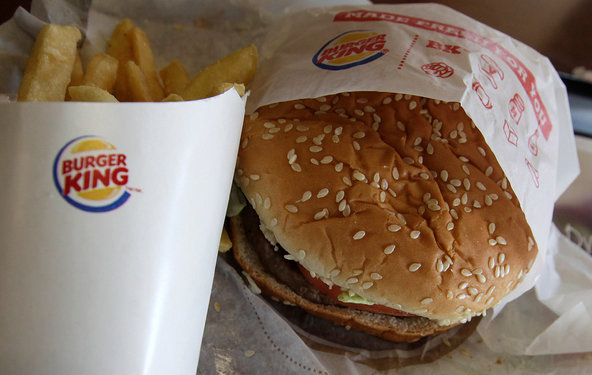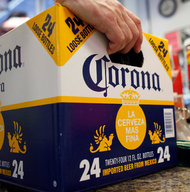 LM Otero/Associated Press3G Capital Management took Burger King Holdings private in 2010.
LM Otero/Associated Press3G Capital Management took Burger King Holdings private in 2010.
Warren E. Buffett’s $23 billion acquisition of H. J. Heinz, a quintessentially American company, is almost a caricature of a Buffett acquisition.
But Mr. Buffett’s partner in the deal, the Brazilian-backed investment firm 3G Capital Management, has also shown a craving for iconic American businesses.
3G, whose principal owner is the billionaire financier Jorge Paulo Lemann, adds ketchup to a portfolio that has included burgers and beer. Mr. Lemann played a major role in the multibillion-dollar merger of the Brazilian-Belgian beer giant InBev with Anheuser-Busch.
And in 2010, 3G took Burger King Holdings private in a leveraged buyout valued at about $3.3 billion. In April, just 18 months after taking it private, 3G sold shares of Burger King back to the public, but still retains majority ownership of the company. The firm has also previously invested in Wendy’s.
The ascendance of 3G and Mr. Lemann as major players on the global mergers-and-acquisition stage reflects the rise of Brazil as an economic power. Armed with strong balance sheets and a growing domestic economy, Brazilian companies have emerged as prominent buyers of American companies. In 2009, for instance, the Brazilian beef company JBS paid $800 million for a majority stake in Pilgrim’s Pride, the Texas chicken company.
Mr. Lemann, 73, who is worth $19.1 billion, according to the Bloomberg Billionaires Index, is said to have come up with the idea to buy Heinz and brought it to his friend Mr. Buffett. The two men have known each other for decades, having served together on the board of Gillette. Berkshire Hathaway is also a large shareholder of Anheuser-Busch InBev. Mr. Lemann and his partners serve on the Anheuser-Busch InBev board.
Mr. Lemann, whose Swiss father emigrated to Brazil a century ago, is a former Brazilian tennis champion who played at Wimbledon. He has lived in Switzerland since 1999, after an attempted kidnapping of his children.
He has been a major player in Brazil since the 1970s, when he acquired a small financial firm and built it into Banco de Investimentos Garantia, one of Brazil’s largest investment banks. Credit Suisse acquired his company for about $675 million in 1998. He and his business partners also gained control of a Brazilian brewery and built it into AmBev, one of the world’s largest beer companies.
The point person on the transaction for 3G, which houses its investment operations in New York, is Alexandre Behring. Known as Alex, Mr. Behring is a Brazilian native who graduated from Harvard Business School in 1995 and lives in Greenwich, Conn.
Another tidbit about 3G: for several years, it employed Marc Mezvinsky, the husband of Chelsea Clinton. Mr. Mezvinsky left 3G in 2011 and has since set up is own hedge fund.
Article source: http://dealbook.nytimes.com/2013/02/14/the-brazilians-behind-the-heinz-deal/?partner=rss&emc=rss
